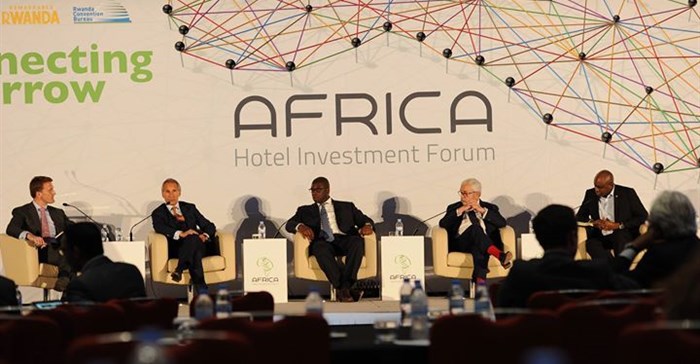AHIF of significant economic benefit to host countries

The total contribution to African economies is estimated at $16.8m and since inception, it is estimated that AHIF has been responsible for deals cumulatively worth over $4bn. The figures include direct, indirect and induced financial benefits – accepted economic multipliers – running from the first AHIF in Morocco in 2011 to Rwanda in 2016. On average, hosting an AHIF event brings $1m in direct benefit to the local economy, an additional $1.4m in indirect benefit, and a six-figure sum in tax to the host government.
Organised by Bench Events, the impact of AHIF comes ahead of the seventh edition taking place between 10 to 12 October in Kigali, running alongside the airline route’s development conference, AviaDev, which attracts leading executives from the world of aviation and hotels, with top government officials and ministers.
AHIF’s key findings over the last six years include:
- Direct contribution of AHIF to local economies projected at $6.9m
- Additional $9.9m generated through indirect and induced impact, i.e boosting local suppliers, increasing local spending power.
- Projected total of $1.1m paid in taxes in various host countries.
- A projected total of 5,462 jobs – temporary or permanent – created or sustained.
- Delegate survey indicates a total deal value of $124m, an average of $4.6m per deal – translated for all AHIF events between 2011 and 2016, deals total an estimated $4.4bn.
“One key gauge of AHIF’s success is the high-level of the delegates it attracts – the attending CEO’s and MD’s do not only spend more than average by staying in the best hotels but much more importantly, they are people with the ability to make decisions, including whether or not to invest in a destination – and that’s reflected in the value of deals done,” said Martin Jansen van Vuuren, report author.
Economic benefits of hosting top-level conferences
“The report also highlights the fact that host economies benefit from wide media coverage and from the credential of hosting a top-level conference like AHIF. Doing so helps to attract further events, which boost local companies and provide job opportunities as well as the chance to develop skills.”
“Economic growth of African countries may have slowed at present because of commodity prices, but commodity prices will rise again, and given hotel development lead-in times, which are three years on average, and taking into account the life of the asset, which is decades after the hotel is built, this is a good moment for investment, in my view,” Van Vuuren continued on Africa’s broader economic prospects.
“We are gratified that this report bears out what we’ve always believed - that hosting AHIF adds value to the places we visit and the conference is a great place to discuss deals which benefit tourism in Africa. This year’s event will be our most comprehensive and exciting with an outstanding line-up of speakers, first-hand advice from experts and unique networking opportunities. Rwanda is a prime example of what can be achieved in our sector by a country that is determined to use tourism to propel itself forward and we’re pleased to be back again in October,” said Jonathan Worsley, chairman of Bench Events.
View the breakdown of AHIF economic impact, year by year.























